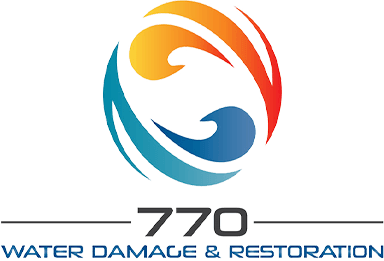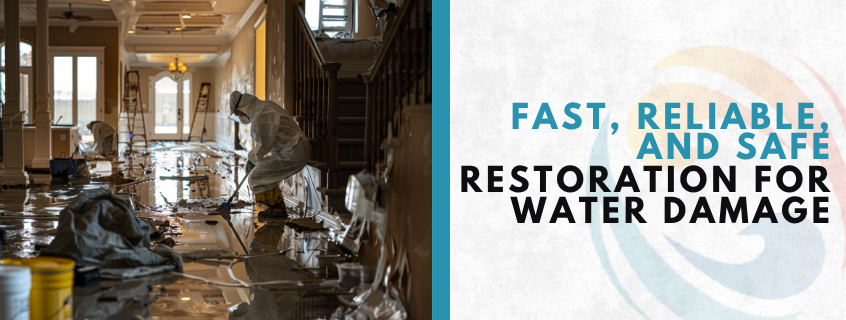Water damage can strike unexpectedly, leaving homeowners in Calabasas stressed and uncertain. From burst pipes to heavy storms, acting quickly can save your home, belongings, and health. This guide outlines the essential steps for effective restoration for water damage, helping you navigate the recovery process safely and efficiently.
Step 1: Ensure Safety and Assess the Situation
Protect Your Family and Yourself
Before addressing water damage, prioritize safety:
- Avoid standing water to prevent slipping or electrical shocks
- Turn off electricity in affected areas if safe to do so
- Wear gloves and waterproof boots when entering flooded areas
Assess the Extent of Damage
Understanding the damage helps determine next steps:
- Check water levels and affected areas
- Inspect walls, floors, and furniture for damage
- Identify contamination sources, such as sewage or chemicals
Documenting damage with photos and notes is crucial for insurance and planning.
Step 2: Contact Insurance and Document Everything
Notify Your Insurance Provider
Call your insurance company promptly to report water damage in Calabasas. Provide details and review coverage options, keeping in mind:
- Standard homeowners’ insurance may cover sudden pipe bursts, but often excludes floods
- Quick reporting increases chances of claim approval
- Ask if they recommend specific restoration services
Documenting Damage Thoroughly
Proper documentation supports claims and restoration planning:
- Take detailed photos and videos of affected areas
- List all damaged items
- Keep receipts for temporary repairs or cleanup
Step 3: Immediate Cleanup and Water Damage Mitigation
Remove Standing Water
Standing water can cause further damage and mold growth. Removal tips:
- Use wet/dry vacuums or pumps for large water volumes
- Avoid household vacuums to prevent electrical hazards
- Remove water-soaked furniture and rugs promptly
Dry and Dehumidify the Area
Reducing moisture is essential for preventing mold:
- Use fans and dehumidifiers to dry rooms quickly
- Open windows and doors for better airflow
- Monitor humidity to ensure areas are thoroughly dried
Clean and Sanitize
Water often carries bacteria and contaminants:
- Disinfect hard surfaces thoroughly
- Wash and dry fabrics and carpets
- Safely dispose of irreparably damaged items
Step 4: Repair, Restore, and Prevent Future Damage
Structural and Cosmetic Repairs
Once dried, focus on restoring your home:
- Replace damaged drywall, flooring, and insulation
Repaint and restore interior surfaces - Check for hidden structural issues, such as weakened beams or mold
Preventative Measures for Calabasas Homes
Protect your property against future water damage:
- Install sump pumps and backflow valves
Maintain gutters, downspouts, and drainage systems - Inspect plumbing regularly for leaks or corrosion
Implementing these steps can prevent costly repairs later and ensure long-term home safety.
Step 5: When to Seek Professional Help
Some water damage scenarios require professional expertise:
- Flooding covers large areas or exceeds two inches
- Sewage or contaminated water is involved
- Mold appears or persists after drying
Professional restoration for water damage services offer:
- Advanced drying and dehumidification equipment
- Expertise in mold remediation and structural repair
- Faster water damage recovery for your Calabasas home
Quick Checklist for Homeowners in Calabasas
Immediate Actions:
- Turn off the electricity in affected areas
- Remove valuables and furniture from the water
- Call insurance and document damage
Cleanup Essentials:
- Remove standing water promptly
- Dry rooms using fans and dehumidifiers
- Clean and disinfect all surfaces
Restoration Steps:
- Repair or replace damaged walls, floors, and insulation
- Treat for mold or mildew
- Implement preventative measures to avoid future water damage
The Homeowner’s Blueprint for Successful Water Damage Restoration
Water damage can strike unexpectedly, leaving homeowners stressed and unsure where to start. From burst pipes to severe storms, timely action is crucial to minimize damage and protect your home. Whether it’s removing standing water, drying out affected areas, or repairing structural damage, having a clear plan makes all the difference. Our guide offers a step-by-step blueprint for tackling water damage efficiently and safely. If you live in Calabasas, professional Water Damage Restoration Calabasas can help you restore your home quickly, prevent mold growth, and recover valuable possessions. By combining expert advice with proven techniques, homeowners can manage emergencies confidently and ensure their property returns to a safe, comfortable state.
FAQ About Restoration for Water Damage
Q1: How quickly should I start restoration process for water damage?
A: Begin cleanup within 24-48 hours to reduce mold growth and structural damage.
Q2: Can I manage water damage recovery myself?
A: Minor incidents may be manageable, but large-scale or contaminated water requires professional assistance.
Q3: How can I prevent future issues when restoring home after water damage?
A: Use sump pumps, repair leaks, maintain gutters, and regularly inspect plumbing.
Q4: Does insurance cover water damage in Calabasas?
A: Coverage varies. Standard policies cover sudden pipe bursts but usually exclude floods. Review your policy carefully.
Q5: What items are most at risk during water damage?
A: Wooden furniture, carpets, electronics, and important documents are highly vulnerable. Prompt removal, drying, and proper cleaning can help save many of these items during restoration for water damage.



